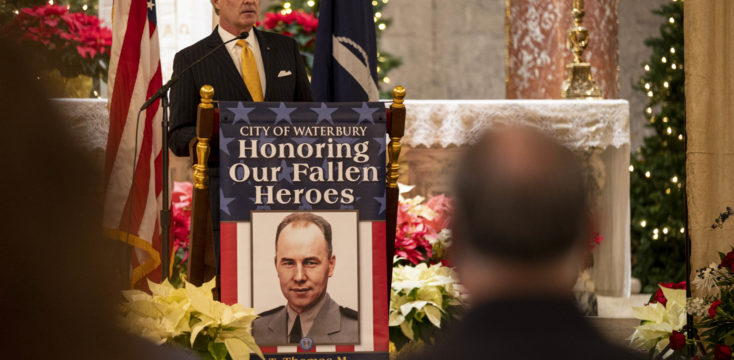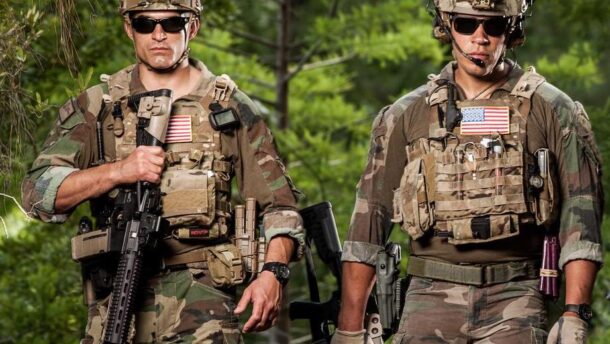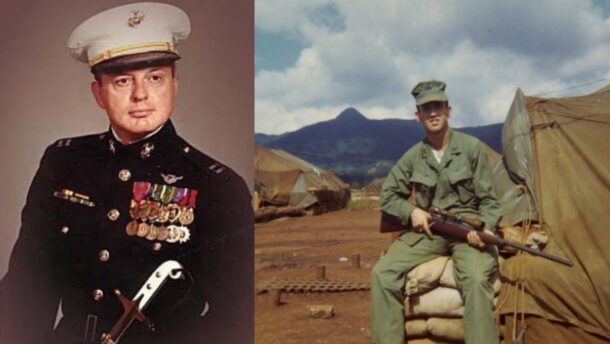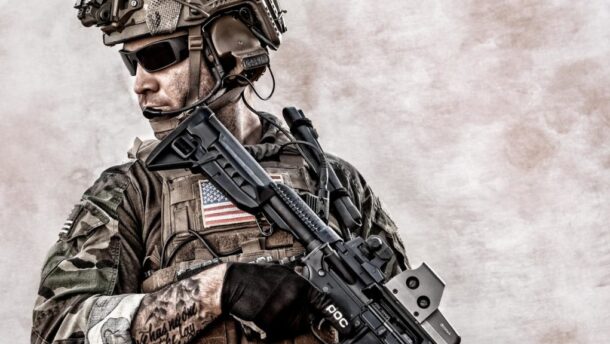
Seventy-five years after the end of the war in the Pacific, the Department of the Navy posthumously awarded the Navy Cross to a revered World War II Chaplain during a ceremony Jan. 8 in his native city of Waterbury, Connecticut.
Lt. Thomas M. Conway, a Catholic priest, was awarded the Navy and Marine Corps’ second-highest military decoration for valor for extraordinary heroism from July 30 to August 2, 1945 while serving as Chaplain of the heavy cruiser USS Indianapolis (CA-35).
“Today, we are here to right the record and send a message that we shall never forget,” said Secretary of the Navy Kenneth J. Braithwaite. “My mother taught me that it’s never too late to say you’re sorry. Today the Navy is sorry for not recognizing Chaplain Conway’s heroism, dedication and courage sooner. Throughout the brutal war in the Pacific, Father Conway stood by his men and provided comfort, leadership, and spiritual guidance when needed most. I can think of no better example of Honor, Courage, and Commitment. Our Sailors and Marines live those core values every day, and they carry with them the spirit of this great Sailor, officer, and pastor.”
Also in attendance at the invitation-only ceremony, at the Basilica of the Immaculate Conception, were family members of surviving crew members from the Indianapolis, members of the Waterbury Veterans Memorial Committee, and city and state government officials, who have been long-time proponents for recognizing Conway’s unquestionable valor.
Monsignor John Bevins, a retired Navy Captain and former pastor of the Basilica, received the award on behalf of Conway.
“We are grateful and proud to call Father Conway one of our own” said Bevins. “His legacy of service and sacrifice is one that we all can try to uphold and emulate. This award is recognition of that and everything he stood for.”
Conway, who was born and raised in Waterbury, attended Niagara University in New York, and after entering the priesthood, served as a curate at several Catholic churches in Buffalo. He enlisted in the Navy in September 1942 and served at various naval stations along the East Coast before transferring to the Pacific Fleet. For several months he was assigned to the repair ship USS Medusa (AR-1) and in 1944 he was assigned to Indianapolis.
Frequently the flagship of the 5th Fleet, Indianapolis served with honor from Pearl Harbor through the last campaign of World War II, earning ten battle stars. After a successful high-speed run to deliver atomic bomb components to Tinian Island, the decorated Portland-class cruiser continued to Guam. Indianapolis was en route from Guam to Leyte when she was torpedoed and sunk by a Japanese submarine within the first hour of July 30, 1945, forcing Conway and hundreds of his shipmates into the open ocean.
Completely disregarding his own well-being, Conway continually swam in shark-infested waters between the clusters of adrift Sailors, many of whom were severely injured, to provide them encouragement and comfort, pray with and for them, and administer sacraments. After three days of tireless exertion to aid his shipmates, Conway finally succumbed to exhaustion and died. His efforts were credited as a major reason 67 of his shipmates in his group were ultimately rescued.
In the years since the loss of Indianapolis, survivors have told stories of Conway’s actions aboard the ship and during his final days, encapsulating the Chaplain as a Navy hero.
“Father Conway will go on to be a beacon of Service above Self for all who serve in the Navy and Marine Corps. His actions will inspire others who at dark and challenging moments in their lives must follow their heart to do their duty,” Braithwaite said. “For me personally this has never been more relevant than during the very events of this week. When you are entrusted to serve the men and women of the Navy and Marine Corps, you must always choose as Father Conway did, to do what you must do – your duty; rather than what you could do for yourself.”







